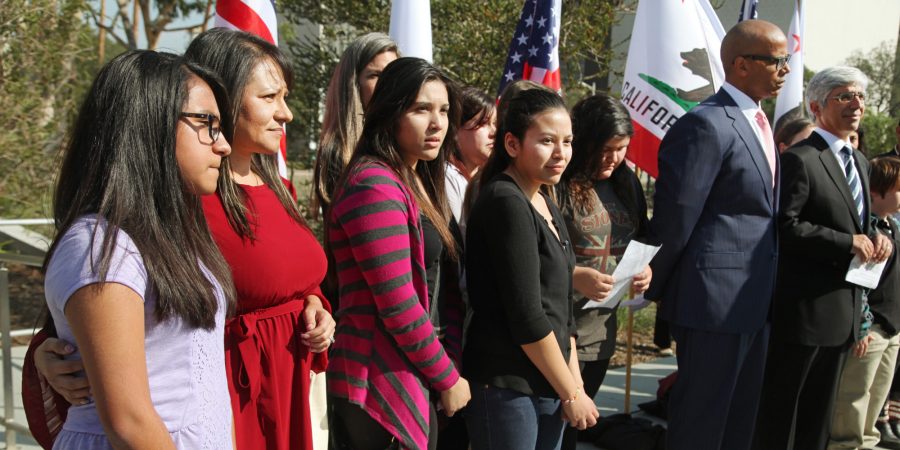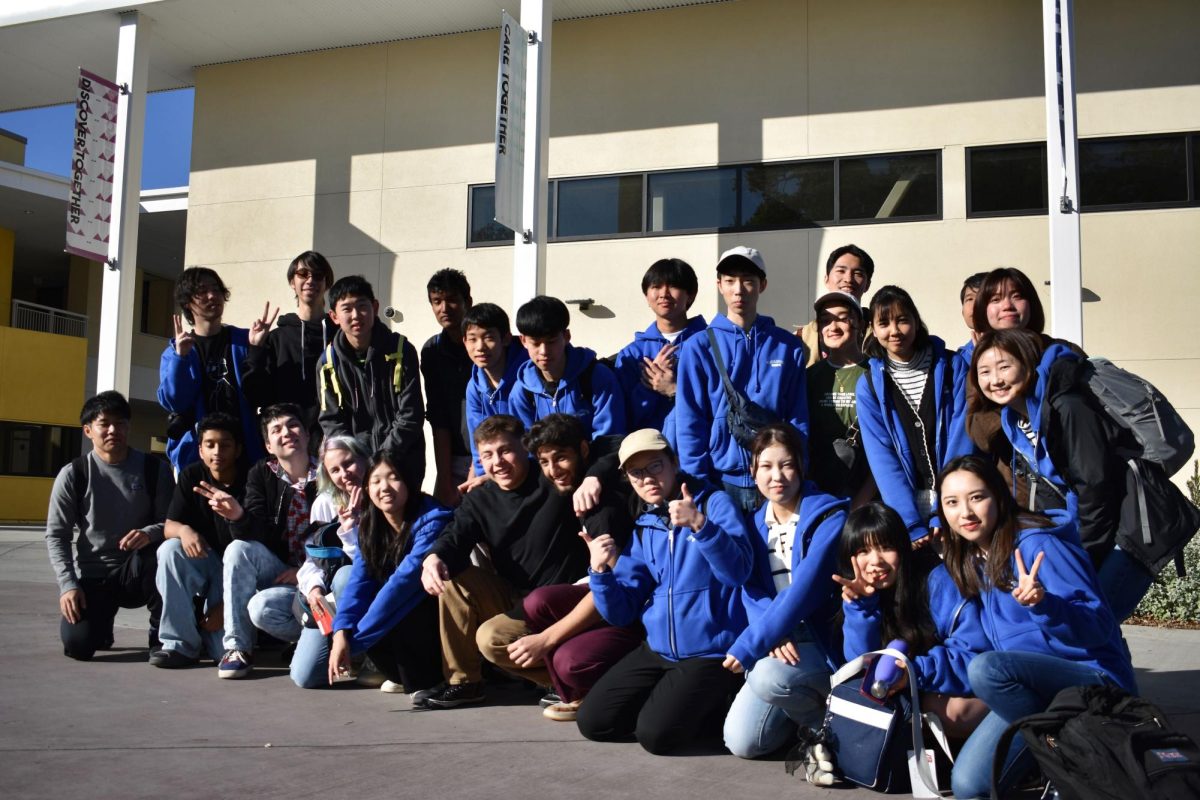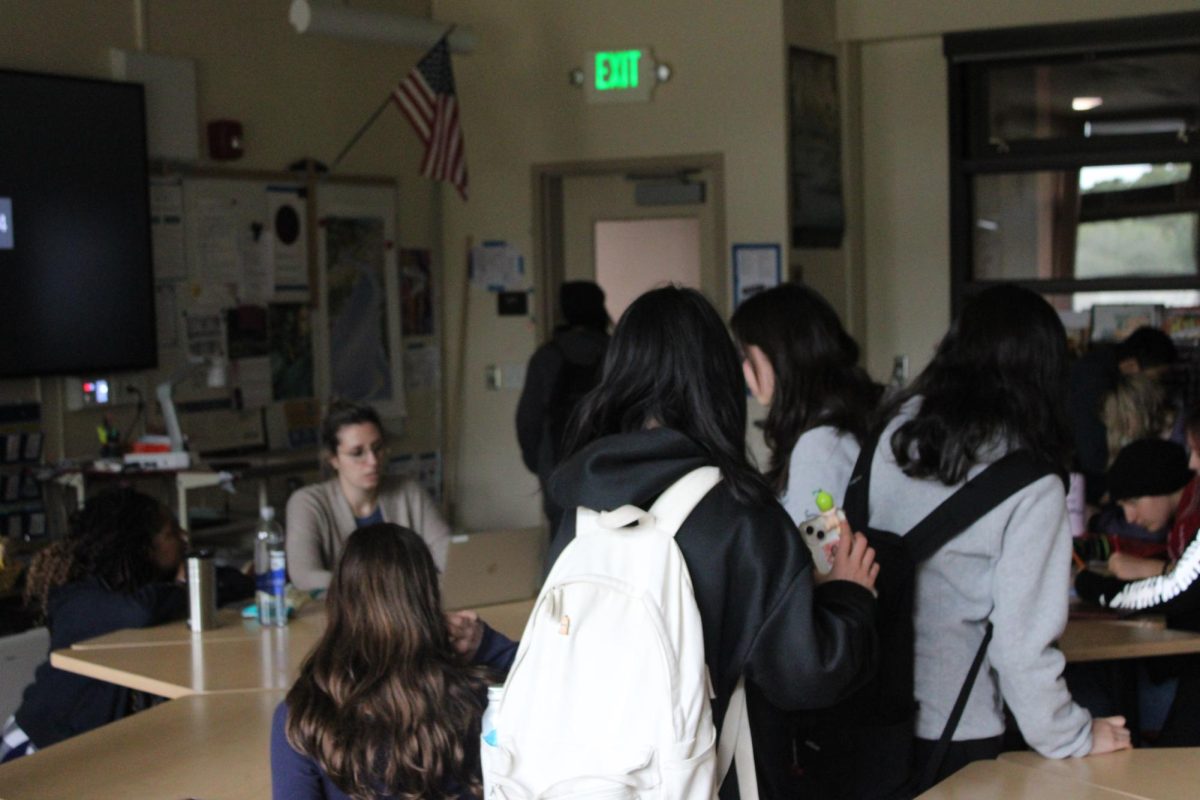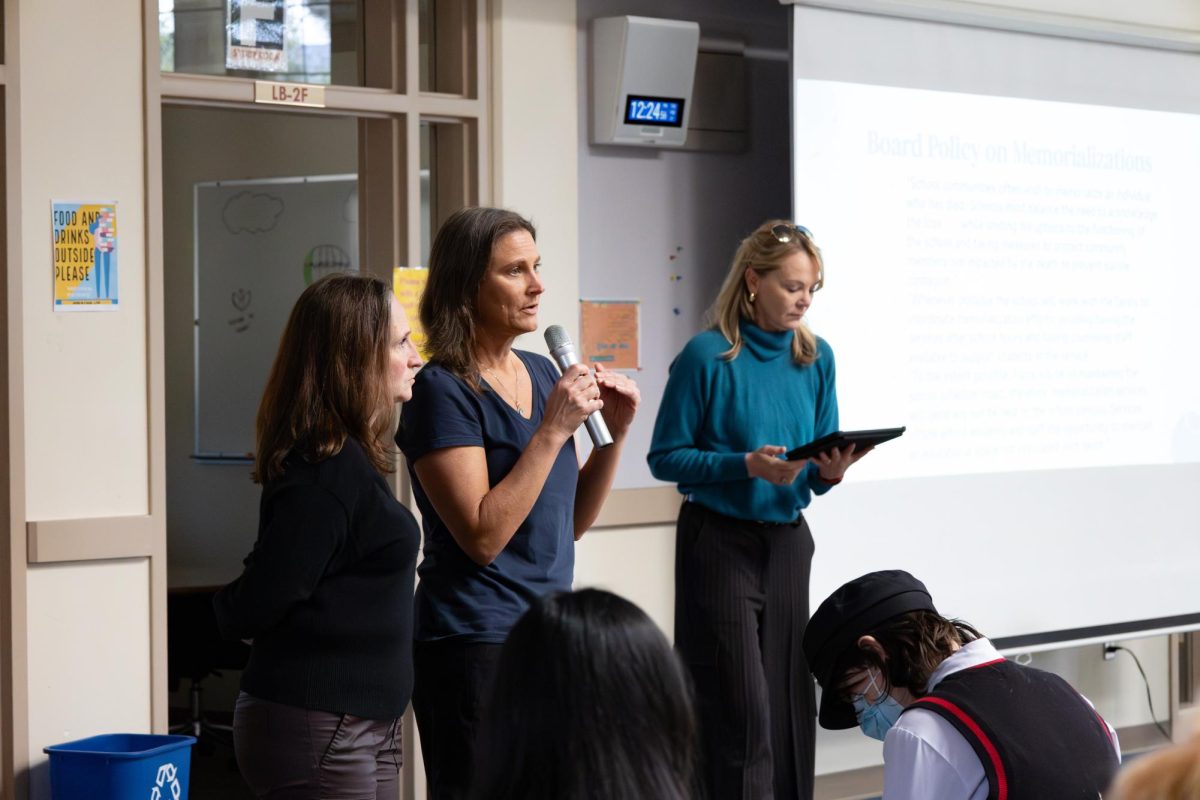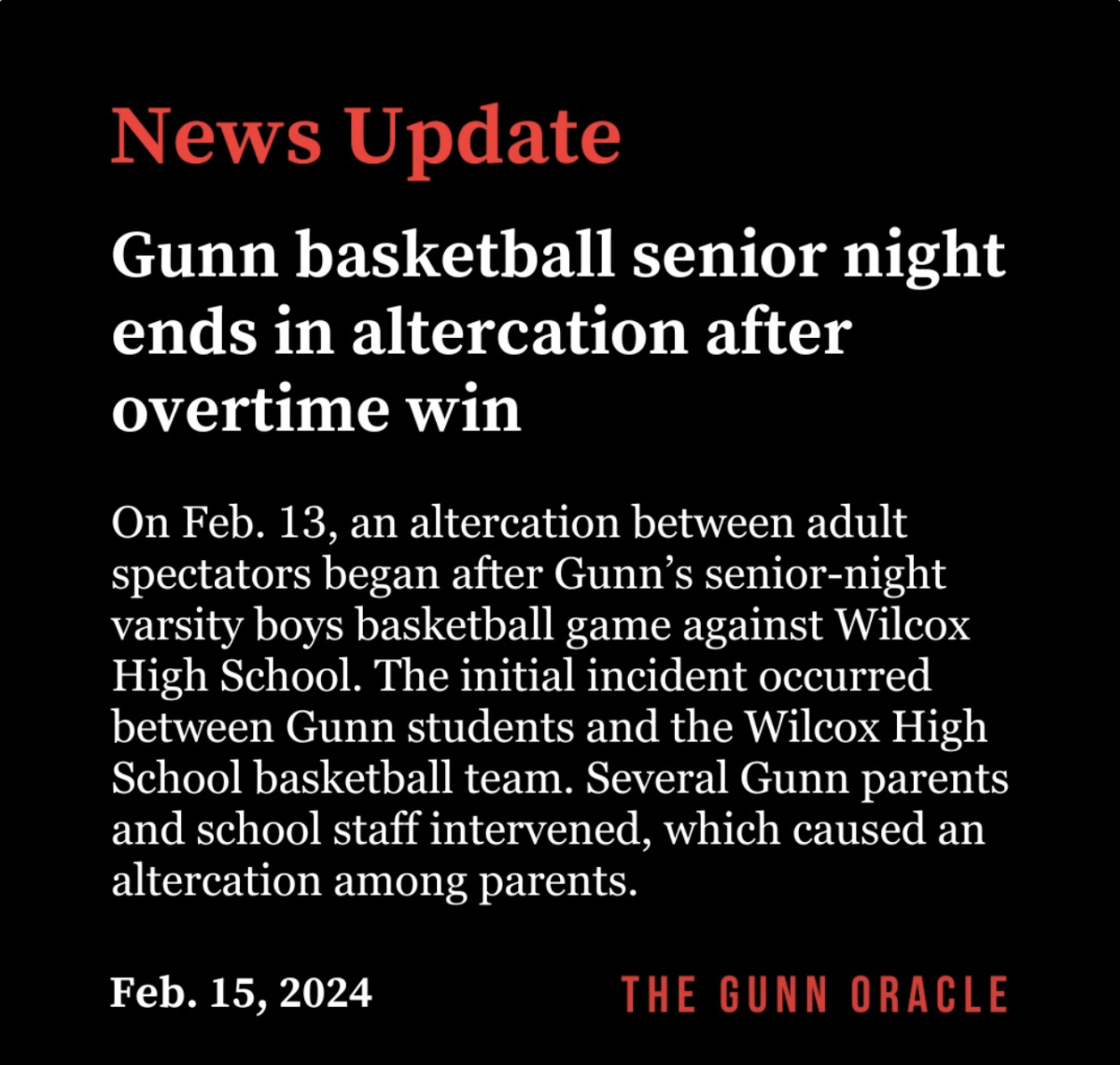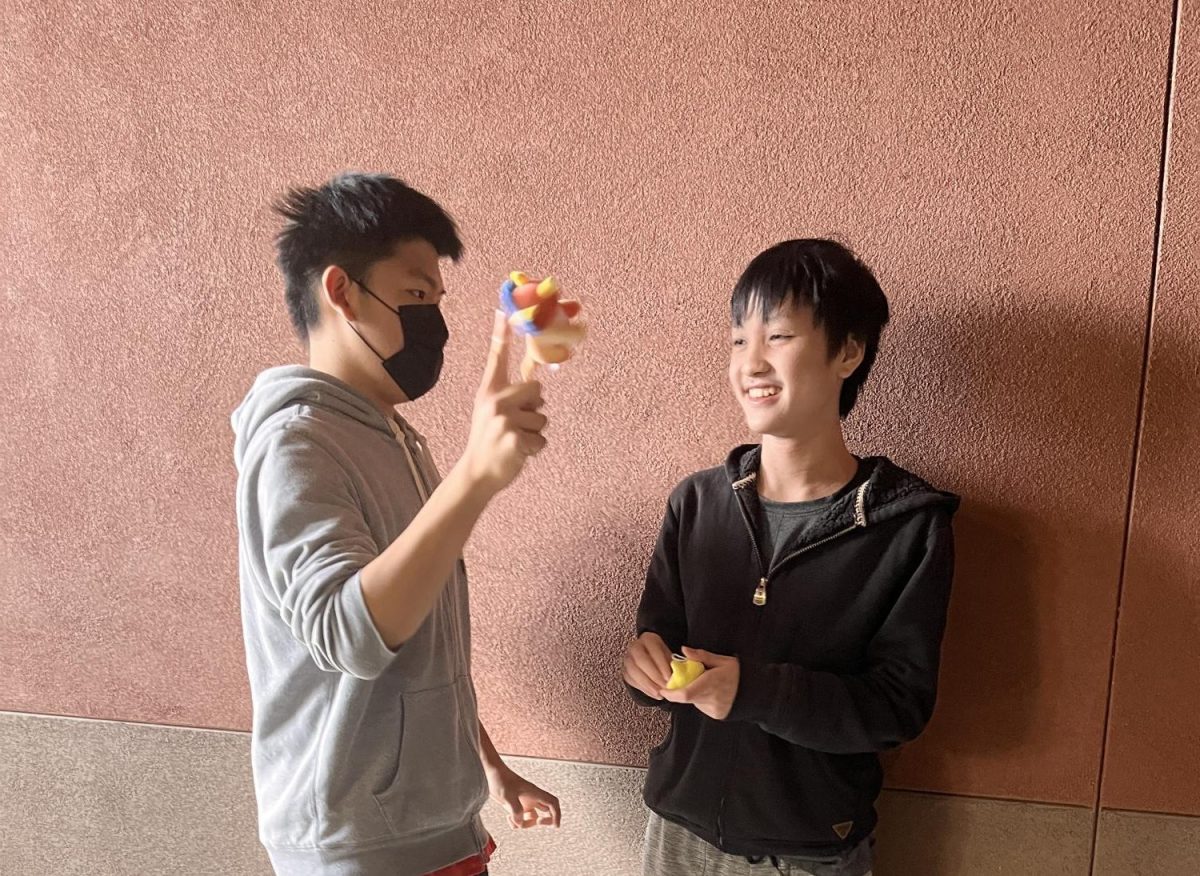Written by Shawna Chen
On Aug. 28, California Superior Court judge Rolf Treu struck down the state’s teacher protection laws in his final ruling for the landmark Vergara v. California case. Treu argued that tenure, seniority and dismissal policies have made it too easy for ineffective teachers to remain on staff and thus deprive students of the right to equal education, specifically those who are underprivileged.
In response, Governor Jerry Brown filed an appeal on Aug. 29 that contended the legal basis for Treu’s ruling and though the process may take months to reach the Supreme Court, implications of the case have spurred national and local debate. While Assistant Superintendent Scott Bowers does not believe that the case will have grand repercussions in Palo Alto, talk of the subject has led both students and educators alike to rethink how Palo Alto Unified School District (PAUSD), too, can improve students’ quality of education.
The lawsuit was brought to court by nine students living in Los Angeles, who assert that teacher protection laws hinder learning. Among their chief objections as stated in their Form of Complaint is teacher tenure, which essentially secures employment for life after 18 months in class. Additionally, costly dismissal policies are often ignored by districts due to large inconveniences, while seniority plays a role in giving priority to length of service as opposed to performance.
In PAUSD, teachers are annually observed while formal evaluations are carried out every two or four years depending on the teacher’s length of service in the district. Permanent status comes with the assumption that teachers are meeting standards, and once it is given, the difference between three and thirty years of experience becomes insignificant. “The seniority aspect of the lawsuit has never happened here,” Bowers said. “That only happens when the district is overstaffed and a reduction in force is necessary, and Palo Alto has not been plagued by that process for many years.”
In spite of this, Bowers acknowledges that other districts across California may fall prey to both the practice of seniority and cumbersome dismissal policies. “People change over time, and if over time someone is ineffective after a period of targeted support for the teacher, the process shouldn’t be so costly that the district won’t even bother to engage in it,” he said.
Furthermore, California’s period of teacher evaluation before permanent status should be reassessed, according to Bowers. “It is true that other states have much longer probationary periods,” he said. “Only a few states like California [retain] the 18-month process.”
Nonetheless, the teachers’ union has fought back against the lawsuit, defending permanent status as a stronghold for academic freedom. The California Teachers Association and the California Federation of Teachers have charged David Welch, the benefactor funding the student group, with scapegoating teachers instead of addressing the true source of the achievement gap: neighborhood violence and poverty of underprivileged children.
For president Palo Alto Educator’s Association Teri Baldwin, misconceptions of the case resulted in a ruling unfavorable to the teachers’ union. “Permanent status and seniority doesn’t stop teachers from being evaluated, they should be evaluated,” she said. “Permanent status and due process rights protect teachers from having districts fire them for no other reason than because they are high on the salary schedule.”
Additionally, Baldwin believes that the plaintiffs made multiple conjectures about the system of teacher assessment without providing evidence. “They’re saying that due process gets in the way of evaluating teachers and therefore keeps bad teachers in the classroom and that isn’t true,” she said. “The case also makes it seem like there are a ton of bad teachers out there and I just don’t think that is the truth.”
The controversy surrounding the case has led educators and students alike to question whether a compromise can be made regarding teacher protection. “I think we need more flexibility but I don’t think we should do away with them completely,” Principal Denise Herrmann said. “I understand the spirit behind the people who brought the case, especially in large districts where an underperforming teacher often is just moved around or is kept instead of a person who is newer to the district but is performing and meeting kids’ needs much better.”
Nonetheless, Herrmann understands the concerns of teachers’ union; the ruling as it stands only presents solutions that represent one polarity or the other. “Right now, it’s black and white,” she said. “It’s either all rights or no rights, and I think that’s something we have to be very thoughtful about.” For Herrmann, the main issue at hand involves the process with which districts proceed with layoffs. “I think we need more options with teacher performance and certification in terms of who goes first,” she said. “The focus should be on who can help more kids.”
Students have also followed the development of Vergara v. California. To senior Joy Jin, the plaintiffs’ complaints can be considered reflections of student experience. However, the promise of teacher tenure is what attracts qualified educators, Jin says. “It’s the guarantee of security if you perform well in your first few years, especially if you have a very controlling administration that could easily fire a teacher without that much of a reason,” she said.
Jin’s suggested solution is to formulate a set of laws that define how to work with different teachers. “The problem is that we don’t know how to identify which teachers are and aren’t qualified because it’s very subjective,” she said. “Every teacher is in a different situation, and it’s very difficult to create laws that apply to everyone.” Even so, Jin admires the plaintiffs’ courage in bringing their case to court. “Beforehand, it was an issue that was below the table because of all the trouble it could cause,” she said. “Now, more people [can be] knowledgeable about the case and form their own opinions.”
While Herrmann encourages all students to bring concerns about teacher quality to the attention of administrators, she also bears the reminder of confidentiality. “Trust that we’ll listen, trust that we’ll respond,” she said. “But when students bring a concern to us, it becomes a personnel matter and that’s a private relationship between me and that teacher.”
While some of students’ requests for change may seem simple, for teachers it is not always easy. “You have my commitment to try and always improve the quality of learning environment,” Herrmann said. “But sometimes, those are habits that teachers have built for 20 years, and they’re not going to change overnight.”
As the Vergara v. California lawsuit progresses, Bowers looks to balance teacher protection within district limits. “Hopefully, [the outcome of the case] balances the needs of the district to ensure that we have the best teachers working with our students and the needs of the individual teachers that they’re getting due process, and that neither one of those is so burdensome that we don’t engage in it,” he said.


